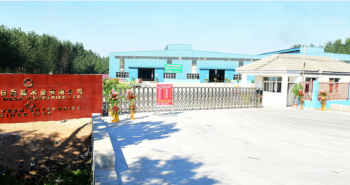Our teak face plywood is made by applying teak veneer to an exterior type plywood substrate, usually meranti. Typical boat applications for the standard grade panel includes cabinets and interiors. It has also been used with some success for exterior applications, however No Warranty is available for exterior application. The plywood must be fully sealed on all sides and edges with a proper marine or exterior varnish for any type of marine use. For exterior use, additional coats per the below *finishing instructions or similar must be applied.
| This product is produced with Type I exterior glue and is NOT an actual marine grade plywood. It is intended for interior cabin use on boats. It is not guaranteed for any type of exterior use. Even if heavily coated in marine finishes, it could fail. If you intend to use this on an exterior exposure application you must completely seal all edges and faces to keep water from penetrating into the plywood. 4 coats of Smith’s clear penetrating epoxy (or equivalent) must be applied to all edges and 2 coats to both faces. A minimum of 10 coats of exterior varnish (Spar varnish or equivalent) must be applied to all edges with at least 6 coats applied to the good face and 2 coats on the back. No warranty is available and never use below the water line. |
| Specifications: Core Plywood Bonding Type: The core veneer shall be bonded with type I exterior or similar glue. Face Plywood Bonding Type: The face veneer shall be bonded to the exterior grade composed core plywood with type I exterior or similar glue. Marine Plywood by Homestead does not warranty this product for exterior applications. However some success has been attained in exterior above water line applications when all sides and edges are sealed per above instructions. Quality of Core Veneers: Exterior grade composed core for marine plywood manufactured from selected untreated tropical hardwoods. Core veneers shall be meranti, okoume or similar species. Small splits are permitted, and there is no limitation on the number of pin knots or edge joints. Discoloration is permissible. Veneers need not be matched for color. Quality of Face Veneers: Face veneer shall be plain, rift or quarter sliced. The method of cutting is at the option of the manufacturer unless it is specified by the purchaser at the time of ordering. These shall present a solid surface, free from open defects. They shall be free from knots, other than sound pin knots, of which there shall be no more than 6 in any area 30cm square , and not more than an average of 2 per 30 cm square over the whole area of the board. The veneers shall be reasonably free from irregular grain, due note being taken to the characteristics of the species being used. Isolated pinholes not along the plane of the veneers, and occasional closed splits are permissible. Veneers showing compression failure shall be excluded. Occasional minor discoloration is permissible. Core Veneer Thickness: Tolerances of the core veneers vary as follows. 4mm +.02/-0.6 6mm, +.04/-0.65 9mm, +.06/-0.75 12mm +.09/-0.82 15mm +.1/-0.9 18mm +.12/-0.98 22mm From the above we can assume that 6mm material will arrive at thickness between 6.04 mm and 5.35mm Face Veneer Thickness: Standard face veneer thickness shall be at least .6mm measured before sanding. Premium face veneer thickness shall be at least 1.4 mm measured before sanding. A face veneer may also be applied to the back of the core plywood to balance the sheet but is not mandatory. |

